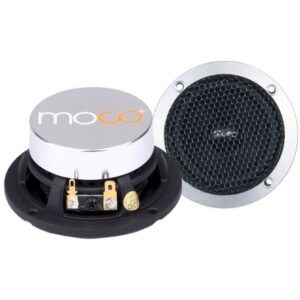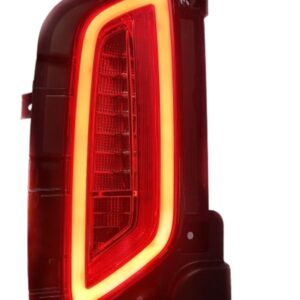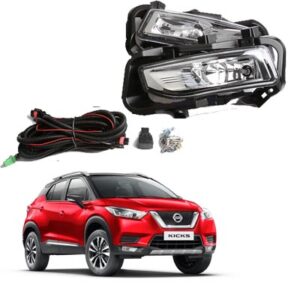In today’s world, where the consequences of climate change are becoming increasingly apparent, every decision we make has a profound impact on the environment. One significant way to contribute to a healthier planet is by choosing to purchase used cars. Not only does this reduce the demand for new vehicle production, but it also lowers the overall carbon emissions associated with driving. This article explores the environmental benefits of buying used cars, particularly those priced between $10k-$100k, and how this choice can contribute to a more sustainable future.
The Environmental Impact of New Cars
When considering the environmental impact of vehicles, many focus solely on the emissions produced while driving. However, the carbon footprint of a car begins long before it hits the road. The production of a new car involves extracting raw materials, manufacturing parts, and assembling the vehicle, all of which require substantial energy and resources. According to the Carbon Trust, producing a new car can generate as much as 6 to 35 tons of CO2, depending on the model.
By choosing to buy a used car, you effectively extend the life of a vehicle that has already been produced, reducing the overall demand for new car manufacturing. This, in turn, lowers the carbon emissions associated with the production process.

The Case for Used Cars: Lowering Carbon Emissions
When you buy a used car, you’re not only saving money but also significantly reducing your carbon footprint. The emissions from a car are highest during the first few years of its life when it’s burning more fuel and the engine is less efficient. As cars age, their fuel efficiency often improves, and their emissions decrease. Therefore, opting for a used car, especially one that is just a few years old, can be a greener choice.
When searching for used cars within the $10k-$100k price range, you’ll find a variety of options that offer both environmental benefits and excellent value for money. Many of these vehicles are still relatively new, meaning they come equipped with modern fuel-efficient technologies that further reduce carbon emissions. Additionally, opting for a certified pre-owned vehicle in this price range ensures that the car has been thoroughly inspected and reconditioned, offering peace of mind along with environmental benefits.
Certified Pre-Owned Cars: A Smart, Eco-Friendly Choice
For those who want the best of both worlds—environmental responsibility and reliability—certified pre-owned (CPO) cars priced between $10k-$100k are an excellent option. These vehicles are typically only a few years old and have low mileage. They undergo rigorous inspections and come with extended warranties, making them a dependable choice for buyers.
The market for used cars in the $10k-$100k range offers a broad selection of vehicles, from fuel-efficient sedans to hybrid SUVs. When you choose a certified pre-owned vehicle, you’re not just getting a used car; you’re purchasing a vehicle that has been meticulously maintained and is less likely to require significant repairs, which can further reduce your environmental impact.
For those on a tighter budget, there are still plenty of environmentally friendly options in the $1k-$10k range. While these cars may be older and have higher mileage, they still offer the benefit of extending the life of a vehicle and reducing the demand for new car production. Moreover, many older vehicles are relatively easy to maintain and can be kept on the road for years with proper care, minimizing waste and the need for new resources.
The Benefits of Buying Used: Beyond the Environment
While the environmental advantages of buying used cars are significant, there are also numerous other benefits to consider.
Financial Savings
One of the most compelling reasons to buy a used car is the cost savings. New cars depreciate rapidly, losing a significant portion of their value in the first few years. By purchasing a used car, you avoid the steep depreciation and can often find vehicles in excellent condition for a fraction of the cost of a new one. This is especially true for vehicles in the $10k-$100k price range, where you can find luxury models or high-performance cars that would be far more expensive if purchased new.
Lower Insurance Costs
Insurance premiums are generally lower for used cars than for new ones. This is because the value of a used car is lower, and thus the cost to repair or replace it is less expensive for insurance companies. This can lead to significant savings over the life of the vehicle.
Variety and Availability
The used car market offers a vast array of options, from budget-friendly models to high-end luxury vehicles. Whether you’re looking for a fuel-efficient compact car, a spacious SUV, or a reliable sedan, there’s likely a used car that fits your needs. The wide availability of used cars also means that you can take your time to find the perfect vehicle without the pressure of limited options or waiting for a specific model to be produced.
How to Choose the Right Used Car
When selecting a used car, it’s important to consider not only the price but also the vehicle’s fuel efficiency, maintenance history, and overall condition. Here are some tips to help you make an informed decision:
Research the Model
Before purchasing a used car, research the specific model you’re interested in. Look for reviews, reliability ratings, and information on common issues. Websites like Consumer Reports and Edmunds offer detailed insights into various car models, including their environmental impact and long-term reliability.
Check the Vehicle History
Always request a vehicle history report before buying a used car. This report provides valuable information about the car’s past, including any accidents, repairs, and previous ownership. A clean history report can give you peace of mind and help ensure you’re making a wise investment.
Inspect the Car Thoroughly
Even if the car looks great on the outside, it’s essential to have it inspected by a trusted mechanic before making a purchase. This inspection can uncover any hidden issues that could lead to costly repairs down the road. If you’re buying a certified pre-owned vehicle, this inspection is often included in the certification process, providing added assurance of the car’s condition.
Consider Fuel Efficiency
Fuel efficiency is a critical factor to consider when buying a used car, as it directly impacts both your wallet and the environment. Look for models known for their fuel economy, especially if you plan to do a lot of driving. Hybrid and electric vehicles are also excellent options for reducing your carbon footprint.
Look for Green Technology
Many newer used cars come equipped with advanced green technologies, such as start-stop systems, regenerative braking, and lightweight materials that improve fuel efficiency. Even in the $10k-$100k price range, you can find vehicles that offer these environmentally friendly features.
The Long-Term Environmental Benefits
When you choose to buy a used car, you’re making a decision that has long-term benefits for the environment. By extending the life of an existing vehicle, you reduce the need for new car production, which in turn lowers the demand for raw materials, energy, and resources. Additionally, used cars help reduce the number of vehicles that end up in landfills, minimizing waste and promoting a more sustainable lifecycle for automobiles.
Reducing Landfill Waste
Every year, millions of cars are scrapped and sent to landfills, contributing to environmental pollution and waste. By purchasing a used car, you help keep these vehicles on the road longer, reducing the number of cars that are prematurely disposed of. This not only conserves resources but also minimizes the environmental impact of car disposal.
Encouraging Responsible Consumption
Buying used cars encourages a culture of responsible consumption. Instead of constantly upgrading to the latest model, consumers who choose used cars demonstrate that it’s possible to meet transportation needs without contributing to the cycle of overconsumption and waste. This shift in mindset is essential for building a more sustainable future.
Conclusion: Make a Green Choice with Your Next Car Purchase
Purchasing a used car is one of the most effective ways to reduce your carbon footprint and contribute to a healthier planet. Whether you’re looking for a budget-friendly option in the $1k-$10k range or a certified pre-owned vehicle between $10k-$100k, there are plenty of environmentally friendly choices available. By opting for a used car, you’re not just saving money; you’re making a conscious decision to support sustainability and reduce your impact on the environment.




